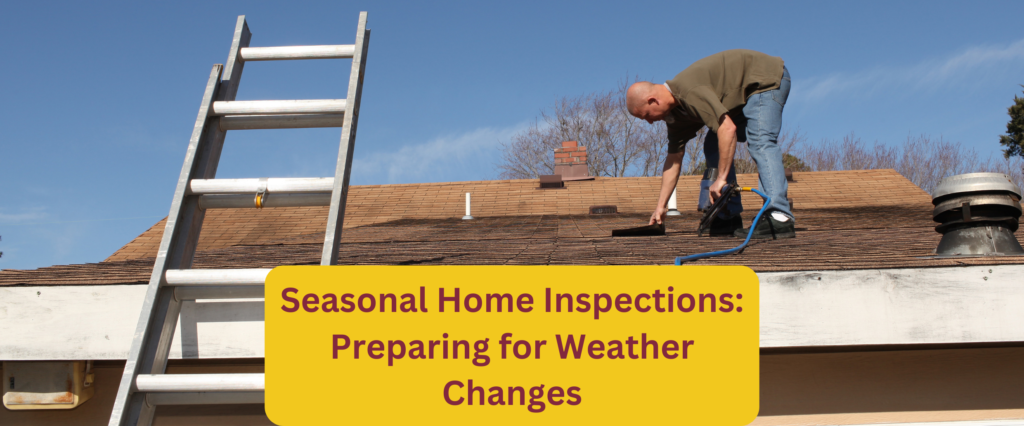
As the seasons shift and weather patterns change, your home faces different challenges throughout the year. Regular seasonal inspections aren’t just another task on your to-do list—they’re a crucial investment in protecting your most valuable asset. Here’s why conducting thorough home inspections before major weather changes can save you time, money, and stress.
Why Seasonal Inspections Matter
Weather-related damage costs homeowners billions of dollars annually, with many issues being preventable through proper maintenance. Seasonal inspections help you identify potential problems before they escalate into costly repairs, ensuring your home remains safe and comfortable year-round.
Pre-Winter Inspection Checklist
Exterior Inspection
- Roof Assessment: Check for loose, damaged, or missing shingles that could lead to leaks.
- Gutter Systems: Clear debris and ensure proper drainage to prevent ice dams.
- Foundation: Look for cracks or signs of settling that could worsen with freeze-thaw cycles.
- Windows and Doors: Inspect weatherstripping and seals to prevent heat loss.
- Exterior Walls: Check for paint damage, cracks, or loose siding.
Interior Inspection
- Heating System: Service your furnace and clean ducts
- Insulation: Verify adequate insulation in attics and walls
- Plumbing: Insulate exposed pipes to prevent freezing
- Fireplace and Chimney: Clean and inspect for safe operation
- Ventilation Systems: Ensure proper airflow to prevent moisture buildup
Pre-Monsoon Season Preparation
Drainage Systems
- Gutters and Downspouts: Clean thoroughly and repair any damage
- Ground Slope: Ensure proper grading away from foundation
- Storm Drains: Clear any blockages to prevent flooding
- Sump Pump: Test functionality and battery backup systems
Structural Elements
- Roof Integrity: Inspect for weak spots or damage
- Window Wells: Clean and check drainage systems
- Foundation: Look for cracks or water penetration points
- Trees and Landscaping: Trim branches that could damage property
Benefits of Regular Inspections
Financial Advantages
- Preventive Savings: Addressing small issues before they become major problems
- Energy Efficiency: Identifying and fixing air leaks and insulation problems
- Insurance Benefits: Some providers offer reduced premiums for well-maintained homes
- Property Value: Maintaining your home’s condition preserves its market value
Safety and Comfort
- Family Protection: Ensuring your home remains safe during extreme weather
- Indoor Air Quality: Preventing mold and moisture problems
- Structural Integrity: Maintaining your home’s core systems
- Peace of Mind: Knowing your home is prepared for seasonal changes
Professional vs. DIY Inspections
While many homeowners can handle basic inspections, consider hiring professionals for:
- Complex systems (electrical, HVAC)
- Hard-to-reach areas (roof, chimney)
- Specialized assessments (foundation, structural elements)
- Annual comprehensive inspections
Creating Your Inspection Schedule
Develop a year-round maintenance calendar:
- Spring: Focus on winter damage assessment and repair
- Summer: Prepare for monsoon/storm season
- Fall: Ready your home for winter
- Winter: Monitor interior systems and moisture levels
Conclusion
Seasonal home inspections are an essential part of responsible homeownership. By taking a proactive approach to maintenance, you protect your investment, ensure your family’s comfort, and avoid costly emergency repairs. Start implementing regular inspections today—your future self will thank you.
